In the Gulf of Nicoya, a few dozen kilometers off the coast of Pájaros, the fishermen of Isla Chira are just beginning to pull their old boats into the mangrove-speckled beaches on the Palito shore. Night is descending and a storm is coming in. Eyes on the sky, the fishermen clean their hooks and put them away until the morning, and one by one begin the long walk home up the dry and dusty roads, baking in the last embers of the twilight heat. The low rumble of a motorcycle’s engine turning breaks the silence of the cool waves lapping on the beach, and soon all the men, except for two, are gone.
Randall and Gabriel are preparing their boats to ride out into the storm. They will spend the next twelve hours on patrol for poachers, moving up and down the clock of night entirely alone, looking for the light that fills a poacher’s boat, listening eternally for the casting of a line; enforcing the laws of the protected waters.
They tell me that the storm will not be enough to stop the poachers, so they must honor their agreement. I watch them leave. Over the years, I have gone out with patrols like theirs for a few hours at a time, and I have always asked the men about the most difficult part of this responsibility. They have always—without fail—replied, “the loneliness.”
It is easy to get lost on the lonesome waters at night, even for the sun-baked fishermen, who know the straight ways and secret channels through the gulf; they will never lose their heading, but the solitude might seduce them to forget their purpose in the drifting hours. The loneliness of the night patrol is a wilderness of desolation—the understanding that all of the people that you love and trust are in a different world, beneath the yellow glow of electric light, while you are wandering alone in a chill wind on black seas, dueling with the gods of apathy in a contest of the wills.
The first time I went with the fishermen out onto the night waters, I felt more alone than I had ever been. The sight of land was lost for miles, swallowed by the dark, as if a net had closed in around me like a fish. It was easy to imagine that the rest of the world had blinked out like a light, and there was nothing left beyond the plane of the sea, and the salt in the air, and the soft splashing of sea creatures dancing in the abyss. When the midnight sky is clear and the heavens are reflected in the deep water, one might sail into the galaxy’s core and no anchor’s weight will hold the boat to earth.
Isla Chira is an island lost in time; it is rare to hear a car, and you’re much more likely to see a motorcycle or a speed-bike kicking up dust on the long dirt roads that wind along the island. Off the western coast of Costa Rica, it is dry and hot; when it does rain on Chira, it is too much and at the wrong times. Stray dogs with many owners roam the island, until their numbers grow too many, and then they begin to disappear. There are hidden places where ageless fig trees grow tall like giants, and grinning crocodiles sun on the shores.
I was twenty-two the first time that I visited the island, picked up on the rocky coastline by a fifteen-seater school bus imported from Korea. Bouncing inland in the early afternoon, I watched the dry forest blur into the climbing hills, and I thought a stray spark might set the whole place on fire. Even as the coast grew distant, it seemed like every homestead had a boat beside it.
At one time, Isla Chira was one of the most productive and diverse fisheries in all of the Nicoya gulf. I heard stories of the years before, when the gulf was rich—when the corvina danced in the cerulean salt and on a good day a fisherman might fill their boat with plenty. But years of over-harvesting—trawling, long-line fishing—had filled the waters with shadows and ghosts.
When I met Gabriel Cruz, he was the President of the Chira Fisherman’s Association, a local collective formed to turn the tide against the unsustainable fishing practices on Chira. The association was founded with the support and insight of the Damas de Chira, a women’s organization on the island that had risen above the cultural machismo to operate a successful local business. For the men to turn to them for help was telling in two ways. It confirmed that the women were gaining respect in the community, and it betrayed how desperate the fishermen had become. In the shade of the Damas’ lodge, Gabriel told me how the night patrols had first begun.
In an effort to curb overfishing in the waters off the island and allow the imperiled populations an opportunity to bounce back, the association had identified a handful of protected areas of open water off the Palito and Montero beaches. They agreed to use nothing smaller than the size seven hook, which would prevent them from catching young fish that had not yet reproduced; they banned long-line fishing, which endangers unintended species like sea turtles; and they prohibited trawling—the practice of dragging a net along the ocean floor, which can decimate coastal ecosystems. To the men of the association, these seemed like reasonable terms.
“But there are always people who don’t go by the rules,” said Gabriel.
Despite widespread agreement to the regulations, rumors spread of local fishermen going out by night to drop their nets into the haven of the protected waters. The association bought forty buoys to mark the boundaries, but they didn’t last; poachers would cut the ropes, or the metal would corrode and the buoys would float away into the open ocean.
As months turned to years, the disappearing species—the lifeblood of their livelihood—did not return.
So two by two, the fishermen began their night patrols. They remained committed to avoiding any violent confrontations; when their mounted floodlights lit the glimmer of a poacher’s vessel on the open water, they invited the offenders into their own boats to talk over the importance of allowing the protected areas to recover. More often than not, they found the face of a neighbor or a family member looking back at them. Gabriel once told me about a net they found in the protected fishing area, which they pulled and handed over to the coast guard. They knew the man who had dropped the net there; he was sick and was recovering from surgery, and had no other means of providing for his family.
“They are our neighbors,” Gabriel told me. “They are just doing their job.”
It was not the first time that I had heard this worldview spoken on the island; one morning I encountered two young fishermen who had driven their boat into the shallows of a mangrove estuary, their trawling nets tangled in the murky water. They had been out fishing in the protected area before the coast guard had chased them into the inlet. Bandanas on their faces, they spent an hour or so picking the dead fish from their nets, too small to feed a child—these were the accidental catches that their nets had drawn as they had sped into the estuary in escape. They were not angry at the coast guard for restricting how and where they cast their nets; in fact, they repeated the words that Gabriel had spoken: “they are just doing their job.” They seemed to me like the jaguar and the deer, each following its own instinct, forever opposed but not necessarily enemies—just clocking in.
Before I left the island for the last time, Gabriel told me that they still caught poachers out from time to time, but the years of hard work and discipline were paying off. The corvina and the snook were beginning to return, and the groupers were coming back so big that they could not be lifted from the water. The work continues, and the fishers go about it gravely; they have already looked into one potential future.
Years ago, the women of the Clammer’s Association on Chira were fighting the same battle—due to over-harvesting, the pianguas were beginning to disappear from the mud flats among the mangroves. The Clammer’s Association implemented size and harvesting restrictions, but without collective local support, they weren’t able to affect the pace of the decline. Now the old buildings of the Clammer’s Association are a ghost town, and the women who used to spend their days harvesting pianguas among the tangled mangroves have had to find another way to make their living. This is what awaits the fishers should they fail.
It’s now been four years since I last crossed the blue waters of the gulf, and I have no way of knowing how the fisheries are faring; if the days of plenty have returned to the enchanted waters; if the night fishermen are still patrolling—yes or no?—in the deep blue midnights of their world.
Now, when a strong wind from the south carries stories from the sea, I feel transfigured, and when I close my eyes I am back in the orange glow of an island evening, and we are going out again to comb the bruisey darkness for the lights of poachers, to listen for the spray of water from the casting of a net.
We will drive the line between the buoys of the past and I will lose the count of hours, until Gabriel lets the engine die and runs his boat aground onto a sandbar in the middle of the gulf, like the spine of a great submerged and unseen creature. The fisherman will leave the boat and I will follow him, not knowing where he is going, where I am going, where we will end up. Then he will point down at the water moving at his feet, and I will see the sparks of bioluminescence glinting in the surf—thousands of microscopic glowing creatures filling the black water with the light of existence, and I will remember why the men go out to spend these long nights patrolling in the cold; what they are protecting, what they have to lose.
These fireworks will go on bursting in the cool swells of the ocean long after we have gone, and in a few hours the sun will rise and the fishermen will take their boats out once again, and the air will be filled with the sound of many hooks—size seven—dropping through the water as they cast their lines.




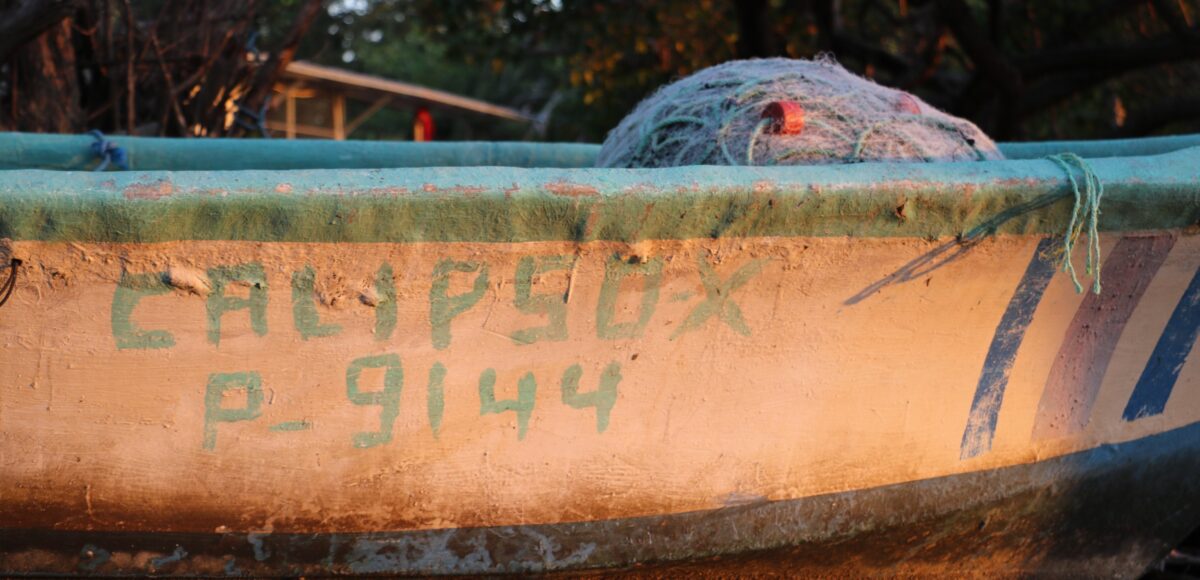
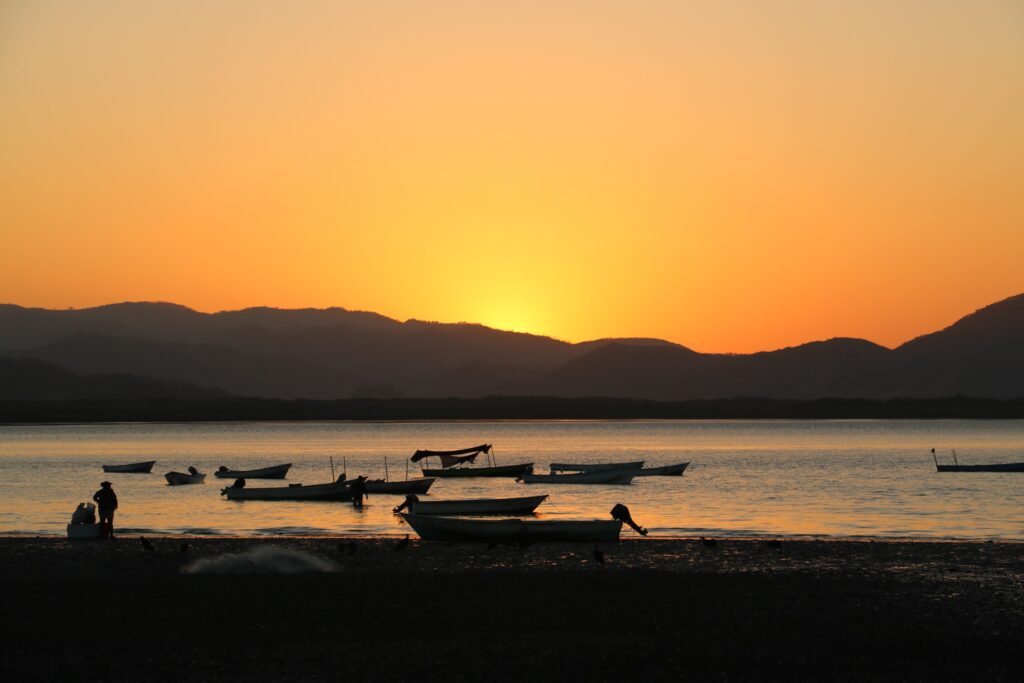
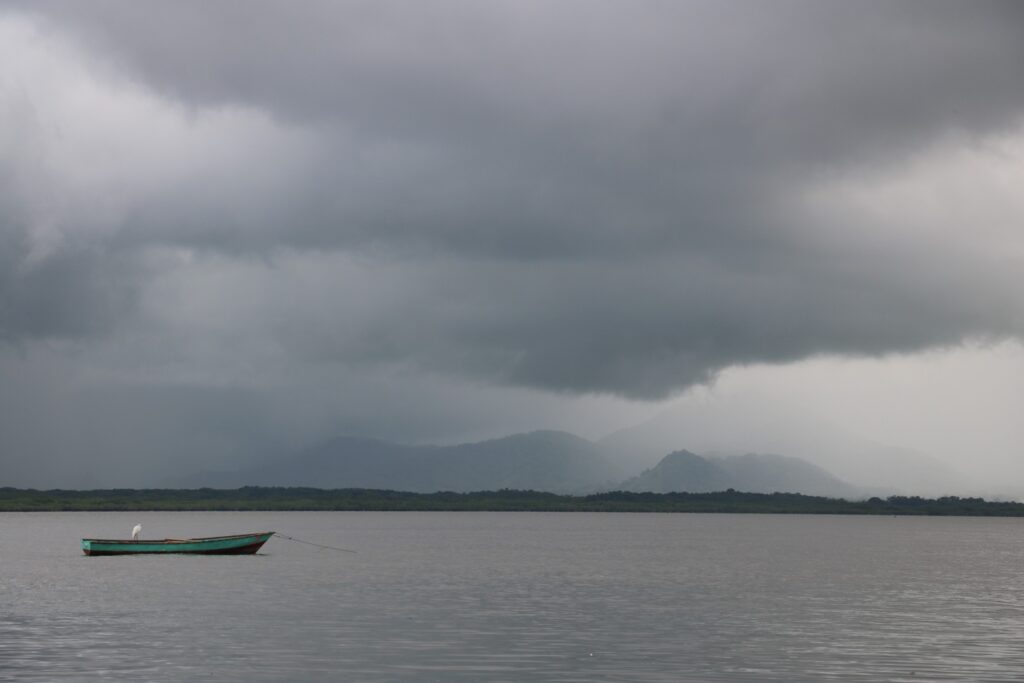
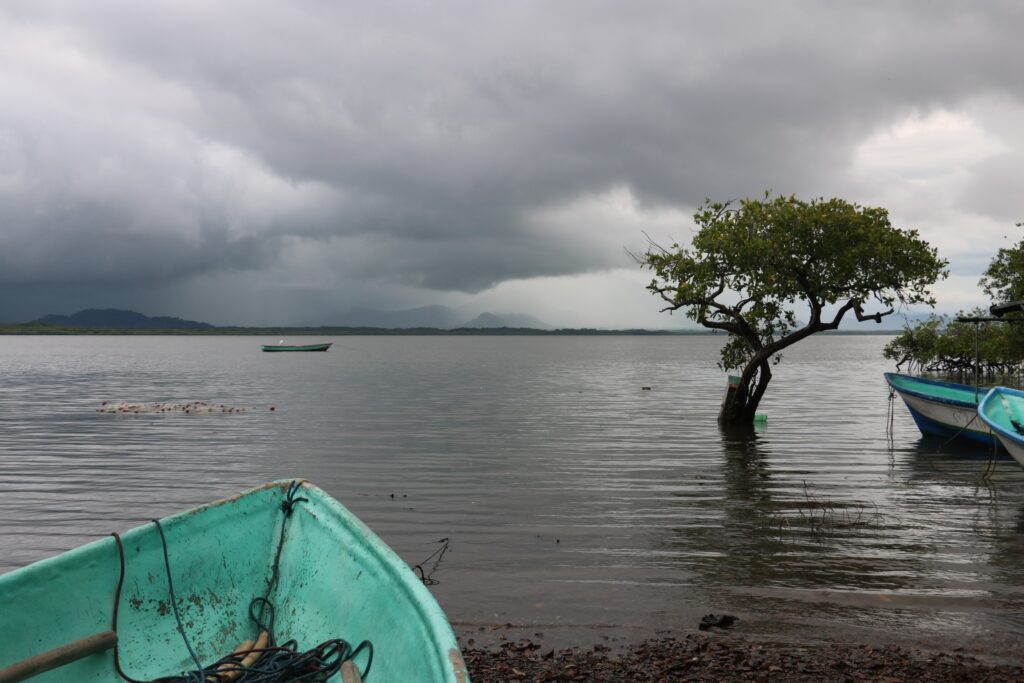
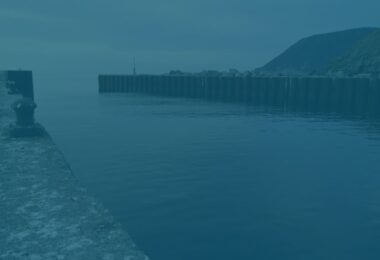
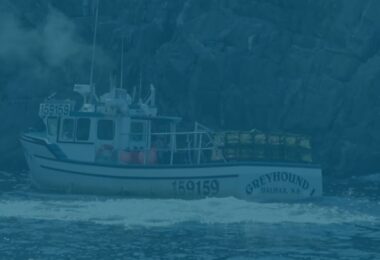
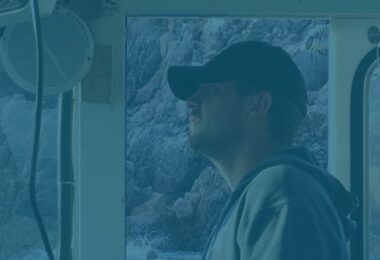
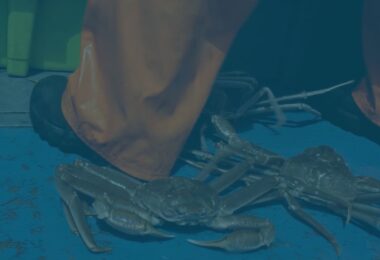

No comments